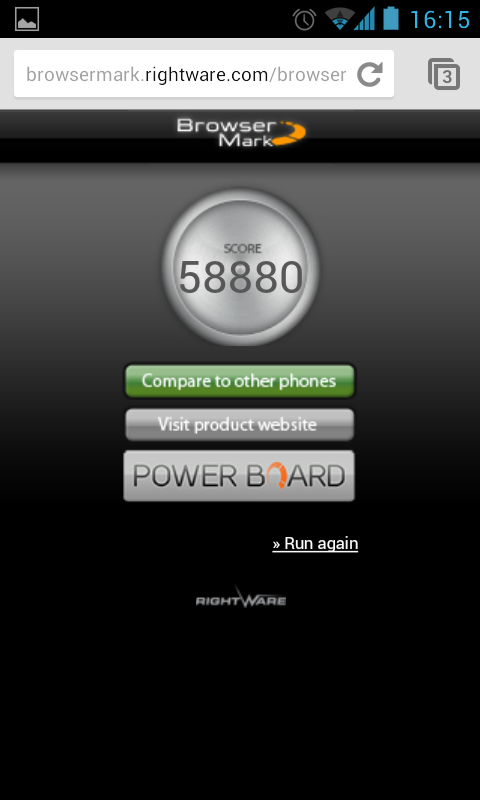Index
Page 3 of 3
Performance
And now for some serious stuff, a few performance figures. Surely, a simple software update can’t work miracles on a two-year old phone? Think again. We included the Nexus S in our standard phone chart last year and updated the results with ICS a few months ago. Back then it scored 6469ms in Sunspider, with the stock ICS browser. However, with a bit of Jelly Bean grease, it managed 2845ms and 3750ms with the stock browser and Chrome respectively. These figures place it on par with the LG Optimus X2 and even Samsung’s Galaxy Note, both on Gingerbread. It almost sounds too good to be true. However, we see the same trend in Browsermark. A few months ago we scored 35753 with the ICS stock browser. Now the score is 53312, again with the stock browser. Chrome scored 58880, after failing the bench a couple of times. To say that we are impressed would be an understatement.

However, hardware-oriented benchmarks like Antutu and Quadrant don’t seem to like Jelly Bean as much as browser benches. We were somewhat baffled to learn that Quadrant and Antutu scores were about 20 percent lower on Jelly Bean vs. ICS. We tried running them a few times, with a cool and rebooted phone, just to make sure throttling had nothing to do with it. Some benchmarks did not run at all, so we could be looking at some compatibility issues. Speaking of which, some apps started to misbehave after the update. Viber was the worst offender, it started throwing its toys out of the pram as soon as the phone was updated, so we were forced to disable it.
Conclusion
Is Jelly Bean all that it’s cracked up to be? Yes and no. It is by no means revolutionary, it’s basically Ice Cream Sandwich done right, with a smoother UI, a few new features, some interesting apps and new notifications options. Tick - tock, remember?
It might not sound like much, but all these incremental improvements come together to create a much better user experience. Yes, user experience, a term coined by spinners to make simple, mundane stuff sound more interesting. However, a mobile OS should be simple, fast, responsive, easy to use in everyday life and well thought through. That’s exactly what Jelly Bean is. Google took an already excellent operating system and with a few minor tweaks it managed to make it even better, that’s all, and that’s a good thing.
But here's the problem. Most users will never get to enjoy Jelly Bean or even ICS the way Google intended. While Google is hard at work improving Android, making it faster and sleeker, phone makers are doing the exact opposite. They are still skinning Android, although skinning is not the right word for what they are doing, as their changes and “improvements” go a lot deeper than this innocent cosmetic term implies. The additional bloat is largely useless and it makes updates a hassle. So, for lack of a better word, they are ruining Android.
It is a bit like buying a brand new car, repainting it with a few ugly decals, then sticking tacky chrome alloys and plastic body kits on it. Just because you can do it, doesn’t mean you should.
Dejan Farkas contributed to this review.
« Prev Next



